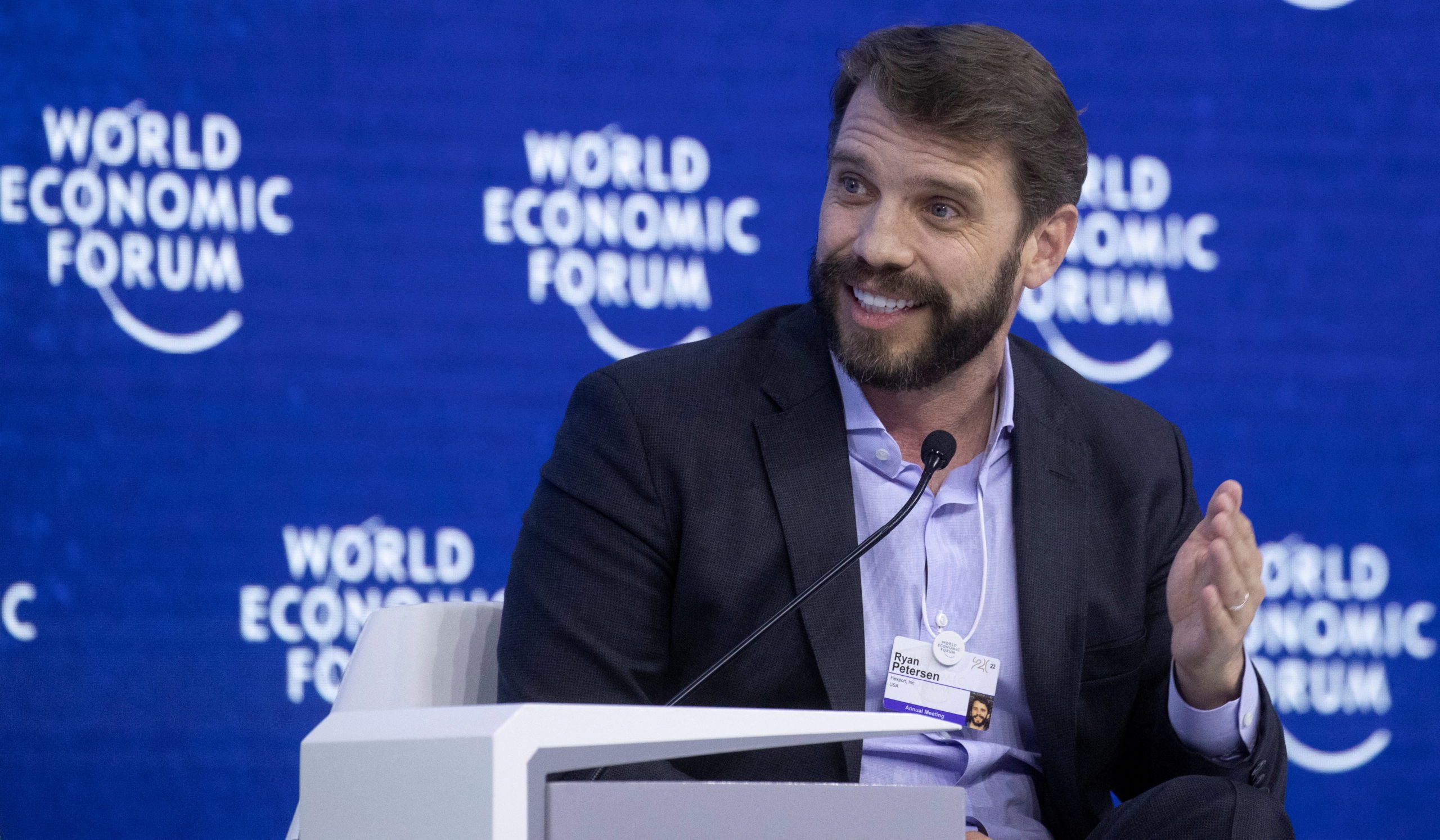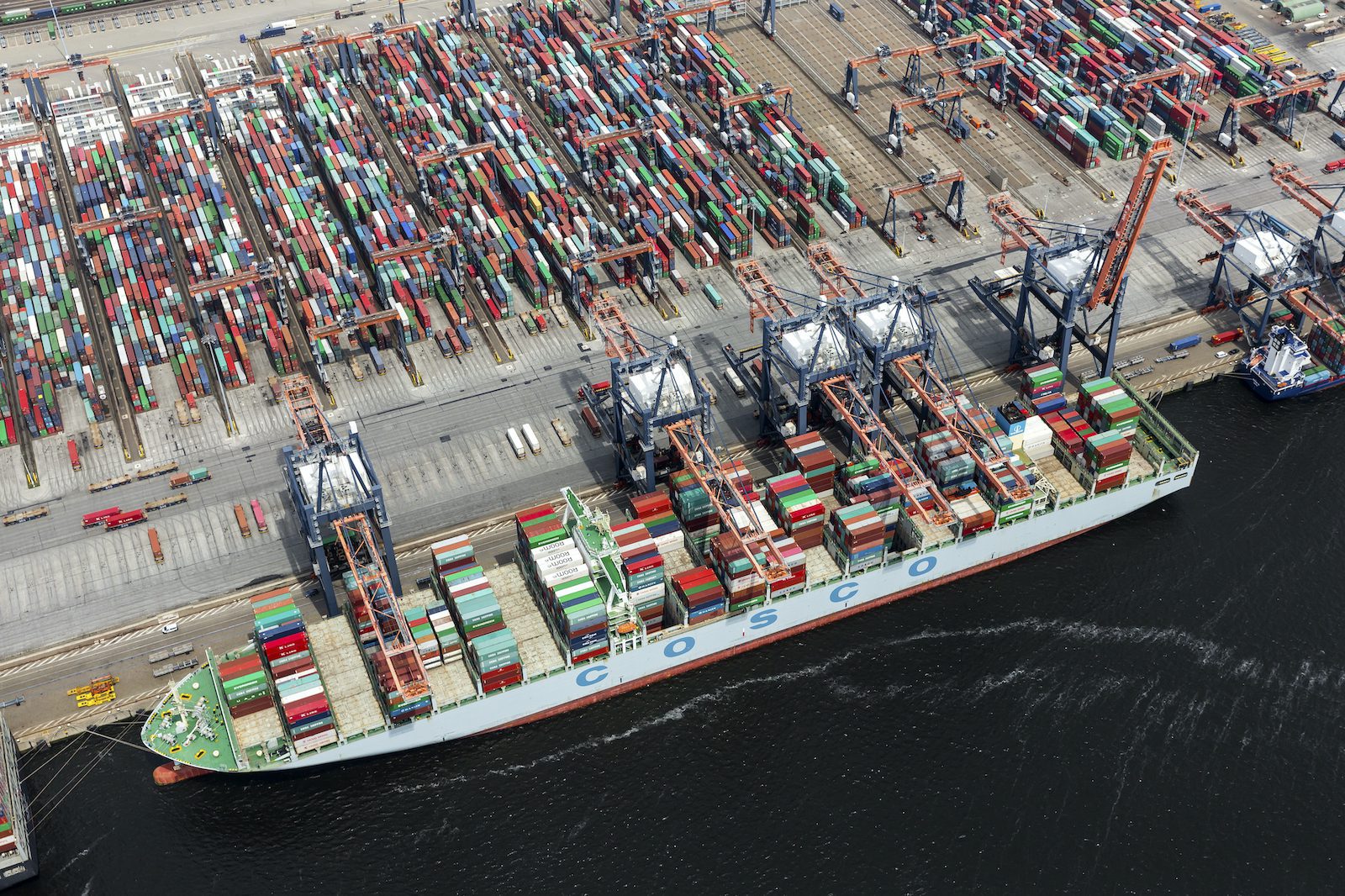(Bloomberg) —
Flexport Inc. founder Ryan Petersen said ex-Chief Executive Officer Dave Clark’s ouster means the once high-flying freight technology company will focus on revenue growth and becoming profitable again despite the ongoing slump in global goods trade.
“I’m not worried at all about this — what the market does in terms of how much volume that’s moving in the world,” Petersen said in an interview Saturday, three days after replacing Clark with himself at the San Francisco-based company, ranked in 2018 among the 10 fastest-growing private firms in the US. “We can still be a growth company even in a declining market.”
Clark, a former top executive at Amazon.com Inc., lost the confidence of the Flexport board, of which Petersen is executive chairman, and left last Wednesday. Several of those who followed Clark from Amazon during his year-long tenure also departed.
Petersen’s return as CEO was a surprise and the timing was awkward: Flexport was planning to roll out an online platform — targeted at small businesses and running on software engineered largely on Clark’s watch by his Amazon recruit Parisa Sadrzadeh – the following day.
Instead, the launch is happening Tuesday in Seattle, where Amazon is hosting a sellers conference. The new membership program is called Flexport+ and it offers mom-and-pop retailers, e-commerce merchants and other fledging enterprises easier online access to services like trade financing, shipping, fulfillment and inventory stocking.
Flexport said the platform will cost $149 a month and offer direct links to Amazon and Walmart Inc.’s fulfillment networks, as well as wholesale channels including Costco Wholesale Corp., Target Corp. and Nordstrom Inc.
Petersen added that Flexport has more than 3 million square feet of warehouse space to offer as reserve storage.
“We can ship cargo from anywhere in the world, from any factory on earth and make it this seamless experience that delivers all the way to customers’ doors or into those store networks,” he said. “And you don’t need to have a logistics department.”
He acknowledged, though, that most of Flexport’s business comes from medium-sized to large companies, and they respond well to hand-holding. Petersen said he wants Flexport to return to a “culture of customer obsession.”
That’s been more important over the past year. Global trade volumes have slumped as consumer spending on services picked up after three years of pandemic-driven binging on merchandise.
According to data from S&P Global Market Intelligence Panjiva, Flexport’s market share of transpacific container shipping — the company’s marquee service — stood at 0.46% of total seaborne imports in January 2020.
By mid-2022, it had more than doubled to 1.05% based on the trailing three-month average and peaked under Clark at 1.15% in February. But it’s been on a downward trajectory since then, reaching 1.06% in August, the figures showed.
Employee Retention
In an email response to questions, Clark said Flexport is “contending with the reset of the market and all the various shocks to the global supply chain over the past 12 to 18 months.” He added that the success of Flexport+ will hinge on whether Petersen can prevent an exodus of talent.
“The tech itself is a phenomenal product that could make global trade much easier for entrepreneurs,” Clark said. “Flexport’s ability to thrive with this product is highly dependent on its ability to execute the back-end processes the technology supports, which heavily relies on the world-class talent we had assembled.”
Petersen said he’s not rolling back the overall strategy that Clark was hired to carry out — for Flexport to be a diversified freight forwarder offering end-to-end shipping for businesses, much the way consumers shop with ease and speed using Amazon.
Earlier this year, Flexport bought Shopify Inc.’s logistics unit and the integration exceeded expectations.
Venture capital-backed Flexport was profitable back in 2021 and Petersen said it might take “a few years” for that to happen again. “I would like to be a profitable, steady compounding growing company and then we’ll go public and Wall Street and everybody else will love it,” Petersen said.
In the meantime, there will be cost cutting. Last week he said on X, the social-media platform previously known as Twitter, that he rescinded job offers extended to recent recruits. He also posted that he’s subleasing office space Flexport has in several cities.
It might be a desperate look to some observers, but Petersen said the real-estate leads are pouring in. He insists any rumors that Flexport is in trouble are “totally overblown.”
“At the end of the day, it’s not a Gucci handbag,” he said. “You’re not going to pay a ton more for freight-forwarding services and so we end up having to charge for it if we have a high cost base. So we’re going to look at a lot of stuff and make some tough decisions on cost.”
Bloomberg Beta, the venture-capital arm of Bloomberg LP, is an investor in Flexport.
–With assistance from Spencer Soper.
© 2023 Bloomberg L.P.
Editorial Standards · Corrections · About gCaptain
This article contains reporting from Bloomberg, published under license.

 Join The Club
Join The Club











